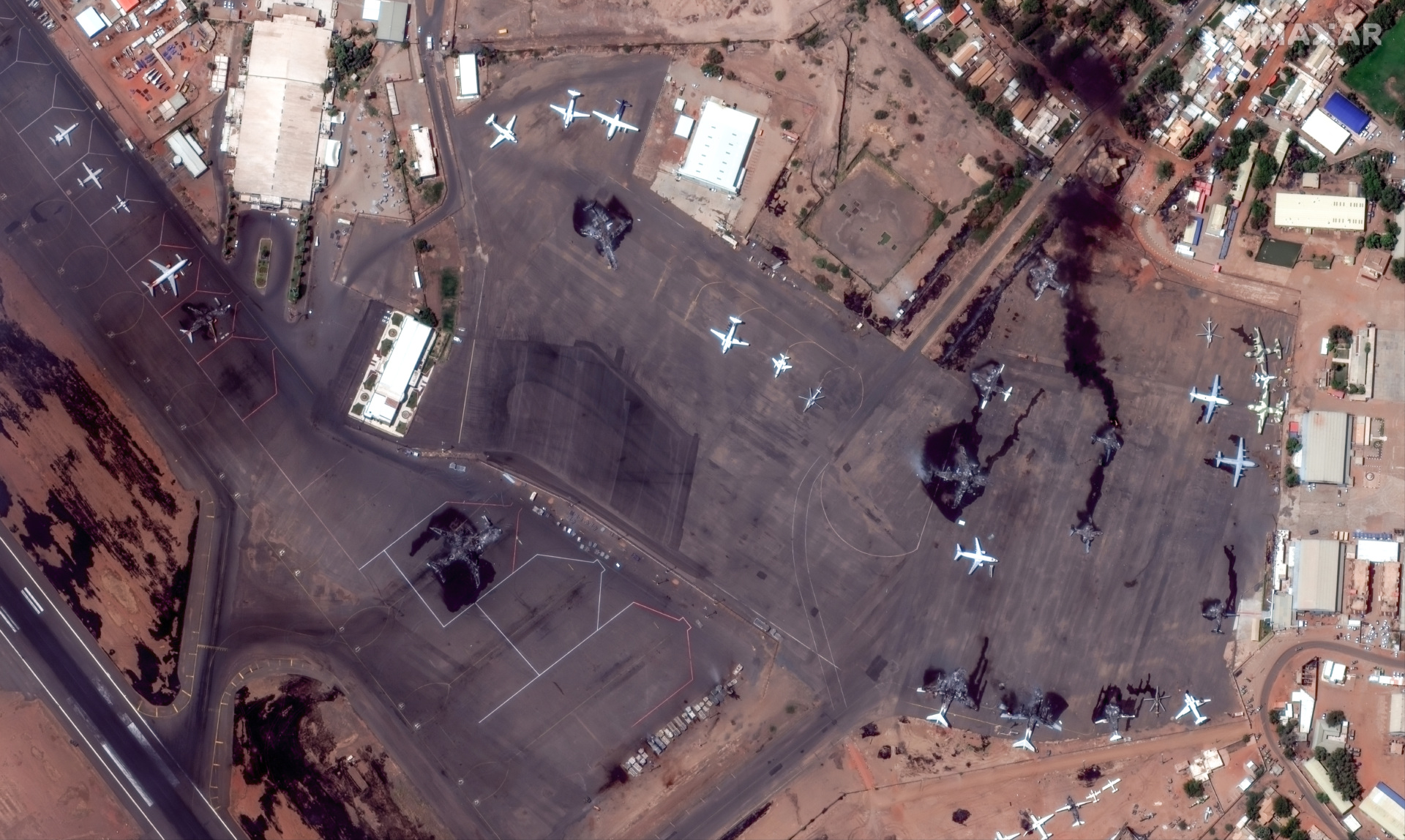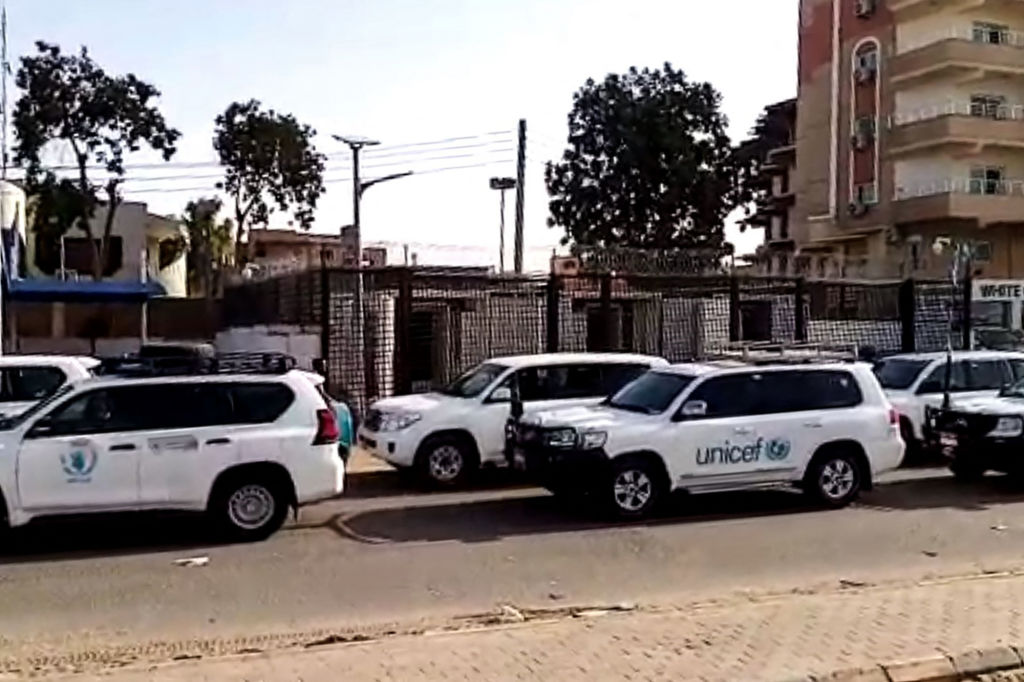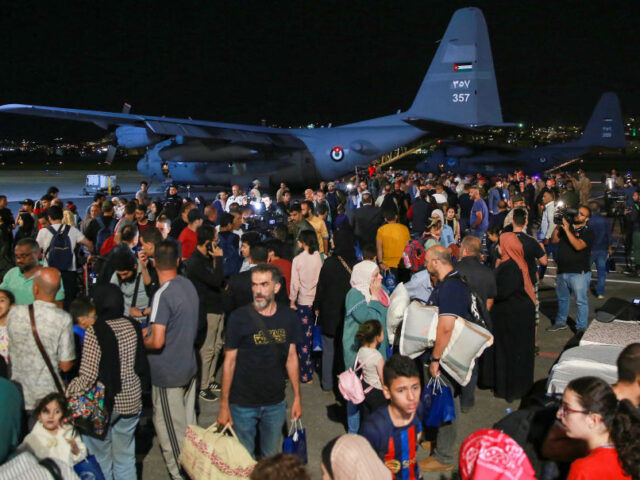Western nations are rushing to evacuate their embassy staff as a struggle for power between rival military factions intensifies. Still, some voice concerns lessons from the chaotic evacuation of Kabul have not been heeded.
The United States, United Kingdom, Japan, France, Germany, and Italy are among Western countries who have extracted embassy staff from Sudan over the weekend, a major logistical feat in a surging conflict which has seen aircraft burnt out and fighting at the capital Khartoum’s airport, and a runway damaged. The United States said it had conducted a military operation to extract government personnel from Khartoum, the United Kingdom said it had used special force soldiers to retrieve their people in a “complex and rapid evacuation”.

KHARTOUM, SUDAN — APRIL 17, 2023: Maxar satellite imagery of destroyed airplanes at Khartoum International Airport in Sudan. (c) 2023 Maxar Technologies.

A grab taken from an AFPTV video shows a convoy leaving Khartoum towards Port Sudan, on April 23, 2023, as people flee the battle-torn Sudanese capital. (Photo by ABUBAKARR JALLOH/AFP via Getty Images)
Yet, while embassy staff have had the military swoop in and pluck them away, citizens of some nations face a harder task, with reports of convoys of vehicles making a dangerous 500-mile drive to the sea amid the fighting. Pictures of a major United Nations convoy with the distinctive white-and-blue agency vehicles headed east out of Khartoum emerged on Sunday. One French national is reported as having been shot “trying to evacuate” after a convoy came under fire. Both sides in the Sudan conflict blamed each other for the attack on the French evacuation convoy.
For some nationals, rescue awaits at the coast: Saudi Arabia led what was described as the first successful military evacuation of Sudan by mooring a warship off the coast and bringing its citizens — and 66 people of other nations reportedly including “Kuwait, Qatar, the United Arab Emirates, Egypt, Tunisia, Pakistan, India, Bulgaria, Bangladesh, the Philippines, Canada and Burkina Faso” onboard.
While the U.S. deployed 100 special forces troops and three Chinook helicopters to get government employees out of the country, it also said it had determined it was not safe enough to extend the service to U.S. citizens in Sudan for other reasons. A message from the Khartoum embassy, which is now closed, said: “Due to the uncertain security situation in Khartoum and closure of the airport, it is not currently safe to undertake a U.S. government-coordinated evacuation of private U.S. citizens… We recommend carefully considering routes and the risks of travel, because roads may be crowded, exposed to combat operations, or have deteriorated infrastructure due to damage to bridges, roads, and facilities.”
While the United Kingdom has said “every single option is being explored in detail” to “get our British citizens out”, it has nevertheless been accused of having failed to learn the lessons of the botched Afghanistan withdrawal which saw deadly scenes at Kabul. Noting that British citizens on the ground were being kept largely in the dark about what the British government was doing — if it is to do anything at all — foreign affairs select committee member Alicia Kearns said there was a “moral obligation” to communicate with those still in the country.
Estimating there were up to 4,000 British citizens in Sudan still and that 1,000 had asked for help to get out, Kearns said, per The Guardian, that: “We have a moral obligation to tell British nationals as soon as possible that is the judgment that has been made, because they then need to make their own decisions… That would suggest no lessons have been learned from Afghanistan and I have urged the government to make sure they are communicating regularly with British nationals. The reality is that, unlike other countries, we have thousands [of nationals in Sudan] so perhaps sometimes phoning around is terribly difficult.”

People evacuated from Sudan arrive at a military airport in Amman on April 24, 2023 (Photo by KHALIL MAZRAAWI/AFP via Getty Images)
This difficulty will have been compounded by the fact the conflict saw Sudan without internet or telephone access on Sunday. Whether this major outage is due to damage to infrastructure or a deliberate switch-off — the Sudanese government has past form of turning off the internet to suppress protests — is unclear.
As reported by UK government-friendly newspaper The Daily Telegraph, the present UK Government’s advice to citizens in Sudan is to shelter in place. Some have said this amounts to having been abandoned.
The government, as articulated by Foreign Secretary James Cleverly, meanwhile said that the “safety and protection of British nationals in Sudan remains a priority for us, a top priority”. Cleverly is expected to make a further statement about Sudan this afternoon.

COMMENTS
Please let us know if you're having issues with commenting.